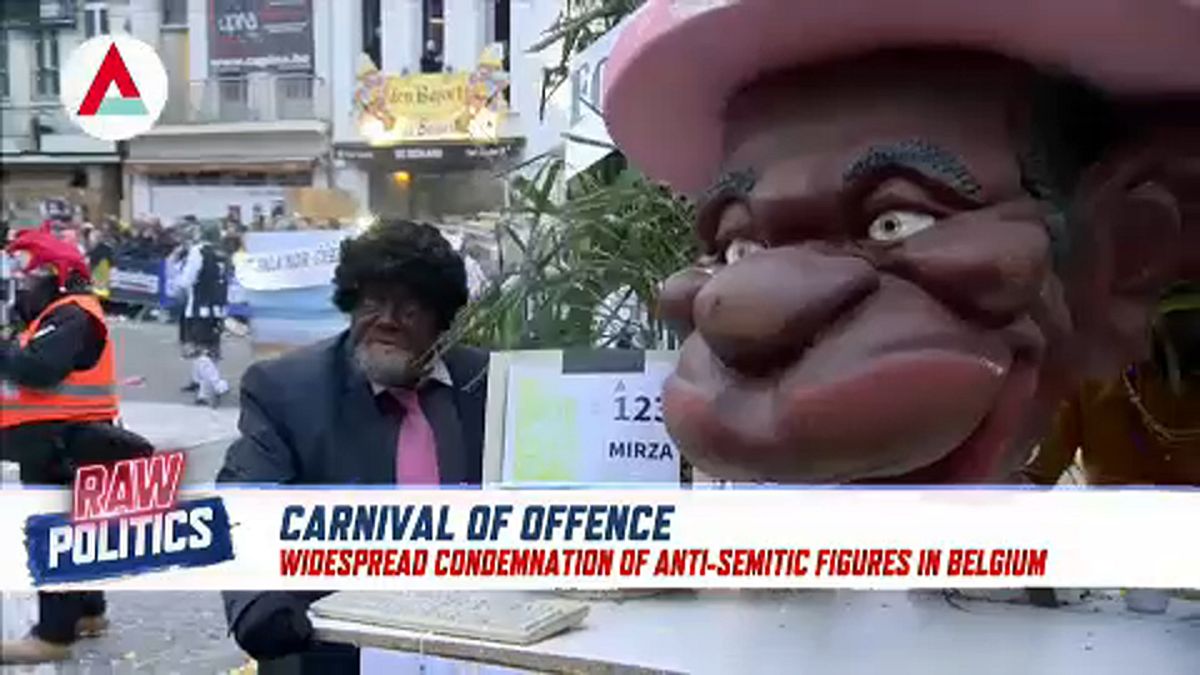A Belgian MEP and a hate speech advisor debate over who's right.
A Belgian carnival in the Flemish city of Aalst has drawn widespread condemnation after floats depicted caricatures of Orthodox Jews, white men in blackface, and white-hooded costumes that drew comparisons to the Ku Klux Klan.
So can a carnival be too offensive — and why?
Julia Mozer, a hate speech advisor with CEJI, said on Raw Politics Wednesday evening: "What's important to highlight is why it's offensive. It's extremely offensive to the Jewish community and Jewish people because the stereotypes that we see there are age-old. It starts in the Middle Ages, we saw them in the programs in the 19th century through the Nazi era."
"Even today when we open social media or the internet you see conspiracy theories about wealthy, greedy Jews that are globally controlling the world and the economy ... so it is still now hurtful and impacting Jewish communities and individuals and it's the reason we find it extremely upsetting to hear," she said.
But many Belgians feel the ire is taken out of context, including Belgian MEP Mark Demesmaeker, with N-VA party (ECR), who said on Raw Politics, "Let me say first: anti-Semitism is a growing problem and we should denounce it — just like homophobia is still a problem and so on."
"But of course your reaction is one that didn't see the whole carnival; it's a bit out of context. You should see the whole carnival and then you should understand what this is all about. This is 3-dimensional caricatures."
"It's a special kind of satire and humour. They laugh at everything. With politicians, I can see my own caricature there or my party leader — and they could all feel offended, but they are not," he said.
It's in line with what Aalst's mayor believes, who said it in a statement it is satire and that people are taking it too seriously.
Not everyone buys it.
Dharmendra Kanani, director of insights for Friends of Europe, said: "Culture and satire can't be hiding places for racial satire and racial stereotypes in the times we live in."
"But also think for a moment the children that watch this, that will go into classrooms, and see people who are different and call them different names," he added.
Demesmaeker rebutted: "You should see it in the context. It's not meant to hurt anybody. This is carnival, we can debate on whether it's good taste or bad taste. But you cannot censor a carnival."
"Intention is not the issue, it's the impact. Whether you believe it was not meant to be offensive. The reality in the world we live in, those stereotypes," Kanani said later.
